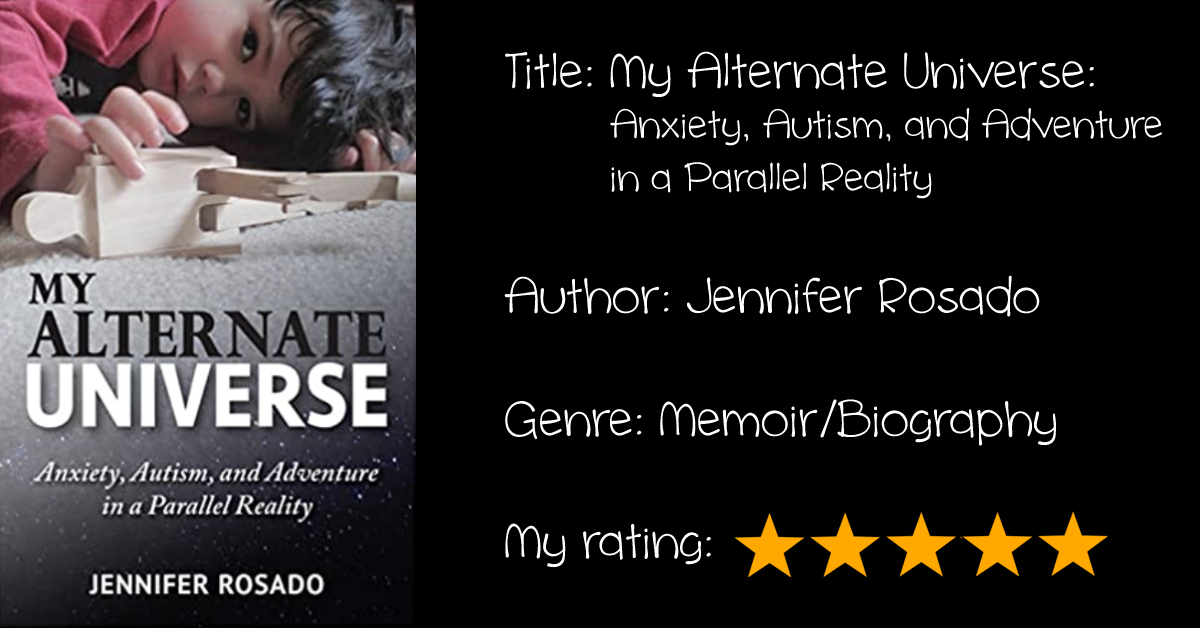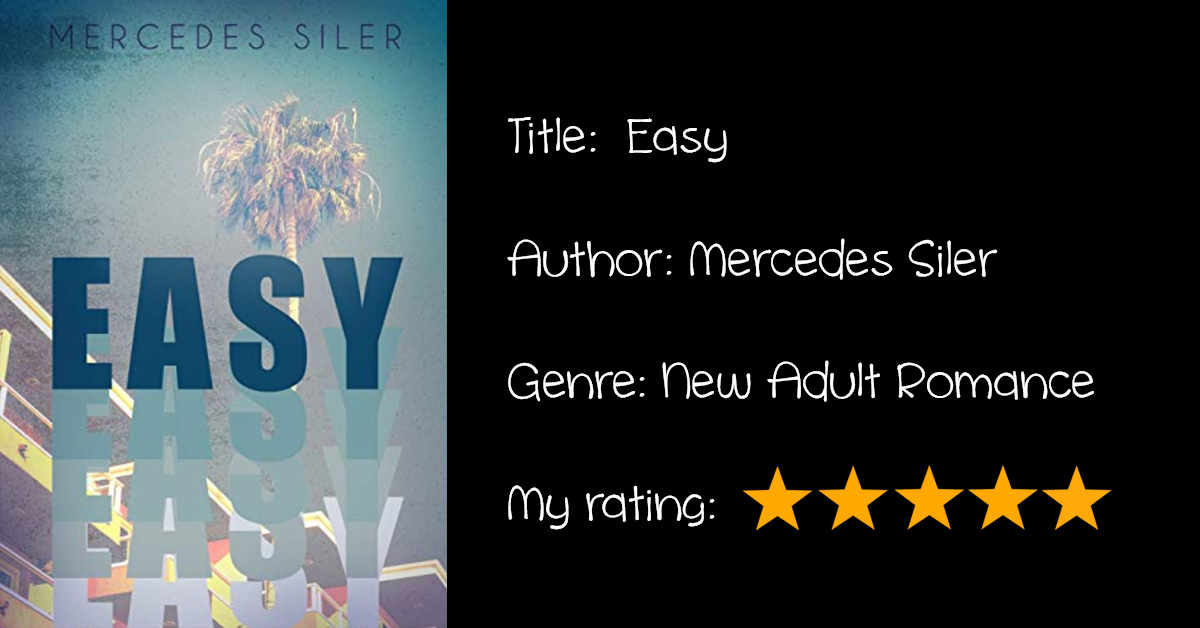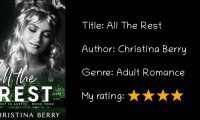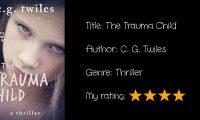Review: “My Alternate Universe: Anxiety, Autism, and Adventure in a Parallel Reality”
I chose this from an ARC program because I have an interest in persons with special needs so I appreciate learning about their experiences.
The Premise
With humour and honesty, the author reflects on her journey as the parent of a special needs child who is on the autism spectrum, and its impact on her own mental health as someone who suffers from anxiety.
The Pros & Cons
This was a beautifully crafted and engaging memoir that I flew through in a couple of hours without pause.
The author recounts her own foibles as an anxious person and how it led to her experience with one of life’s greatest letdowns: childbirth. Her imagined experience quickly turned into a horror story of pain with an unplanned C-section, a stint in the NIC-U, and a colicky “volatile, mutant” child with superpowers. It was an out-of-body experience whereby she could imagine her “other self” in an alternate universe living her well-planned life.
Her thoughts on early motherhood will resonate with mothers everywhere:
Time started to lose meaning. […] It felt like a long, endless, dark tunnel with no light at the end. […] Burnout set in, and with it came disappointment, bitterness, and even anger that my motherhood experience was so unlike the image I had created in my mind—the image of motherly bliss that I knew my alter ego was enjoying.
Then, it wasn’t until her son was a toddler that she really began to notice he was “different” — and even then, denial was a safer space to exist in than the alternative:
Everyone reassured us that he was fine. “He’s a boy! Boys have lots of energy.” “Boys talk later than girls.” “He’s super intelligent; that’s why he’s so observant.” “So what if he plays differently? That just shows he thinks outside the box.” I wanted to believe them. So did my husband. We both wanted to remain spellbound by our boy’s uniqueness, by his brilliance. In a way, our delusions became a cover for our denial.
However, when a diagnosis was finally made, she felt it “freeing” as it gave her direction and clarity to devise a new plan. As she engaged in the special needs community and found strength in sharing her story and learning of others’ challenges, a new path was forged for his education and additional support. When he outgrew the support his school could provide, the move to another school was a challenge — a heartbreaking moment for a parent when you don’t know how to help your own child.
There are many poignant moments the author captures perfectly. As a special needs parent, distance grows over time with anyone outside of the community with “regular” lives. Also, the things she loved and looked forward to as a child — holidays, snow days, vacations, playgrounds — all of these “special events” only stir up confusion in the “fish tank” her family exists in, so looking at the outside world is unbearably painful.
She demonstrates that despite all the commonalities among the special needs community, everyone’s story is unique. Also, the labels of “mild” or “severe” autism don’t serve any purpose except to adapt the therapies to help him:
It didn’t define who he was. It didn’t predict his future. Acknowledging where my son is on the autism spectrum at any given moment doesn’t mean I’m giving up or lowering my expectations. It means I’m accepting him for the wonderful, amazing little person he truly is—just as he is.
Unlike many other books of this nature, the focus is less on the day-to-day drama of her son’s challenges (though she does recount a few key incidents), and more on her own journey and emotions that range from anxiety and panic to acceptance and love. Her experience as his mother also led her to have a greater appreciation for her own parents, realizing only in retrospect that her humble upbringing was still a charmed one.
Conclusion
The overall message the author emphasizes is that she is no “better, stronger, or faster” than any other parent trying to do the best for their child. By virtue of that, like any parent she has had to shed parts of herself to adapt to her son’s needs — something that not just “special needs” parents but all parents face. But amidst that sentiment of sacrifice is one of immeasurable courage and love. Engaging from beginning to end, I highly recommend this book for everyone, but particularly for parents of children with special needs. It is beautiful and inspiring, providing insight and hope that may capture someone at an overwhelming moment of despair and uplift their spirits.








